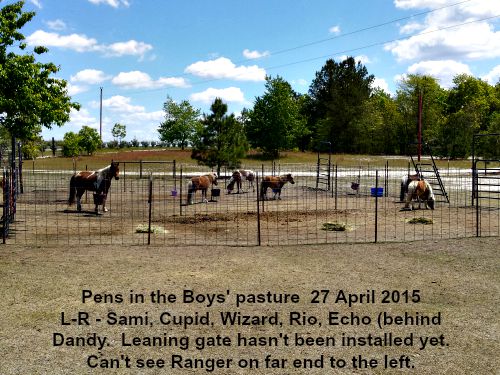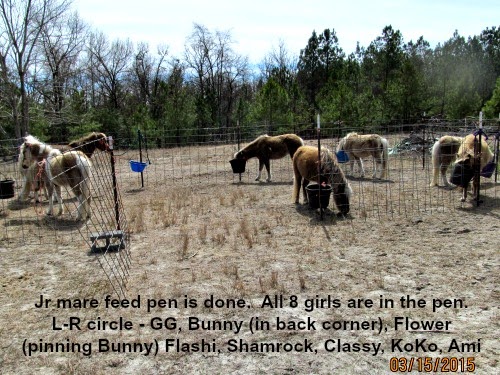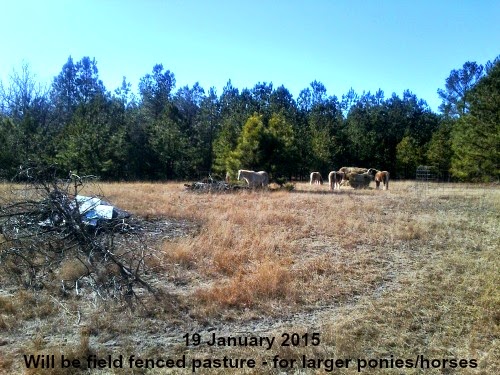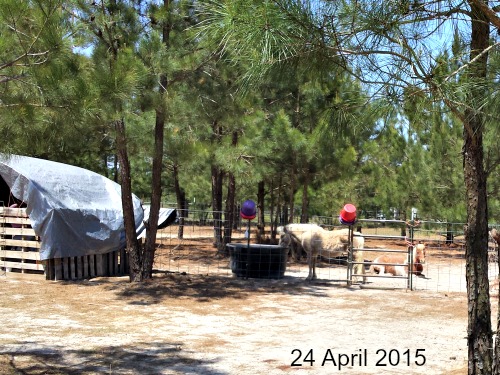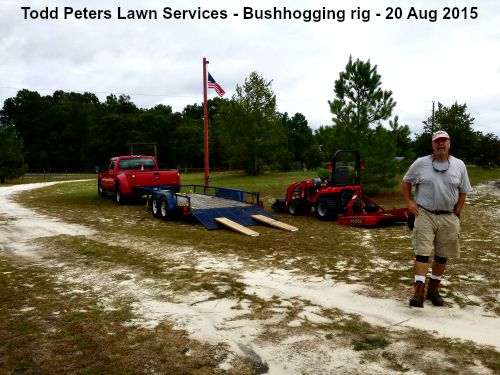There are several farms you could contact that run large numbers of mini horses. You might even mention what state you are in, so that maybe a couple of farms/mini horse ranches could be recommended for contacting to get advice.
With ours - with hooves, I have them on approximately an 8 week rotation - but it really varies. I make notes (used to be on paper - which WAS more reliable. Really sucks when you make a lot of notes on your phone and if you forget to hit save or you drop it while moving to correct the pony you are also holding - everything disappears. Not like some computer programs that auto save or that ask you if you want to save or that will pop up with a "recovered" document and ask if you want it or trash it). That said - i have had ponies that have had problems and were trimmed a 2nd time just a short two weeks later and over the winter a couple of times when first me and then my farrier were really ill and we swapped out appointments and one group didn't see the farrier for a full 12 - 16 weeks (3 - 4 months). None of these ponies were in work at the time and none died or were adversely affected at the time. I've done as few as 2 (which was where we were when the call came in that our daughter had had a vehicular accident) and as many as 9 at one time. AND I have 2 mares that haven't seen a farrier since 2012. The one is a "wild" one that came to me from the mid-west. We can work with her all we want (it's difficult and we work carefully so as not to be bit or struck) - she's not a pleasant girl when it comes to hoof handling and my farrier started to do her 1 time and said "NO". Pretty much the same for the 2nd mare. She gets more and more uptight while being worked on until like a bomb she explodes. God forbid you are in the path of one of those fast flying hooves! Farrier DID trim her for a couple of years (Aug 2010 thru Feb 2012). For the most part their hooves break off quite nicely - all on their own! They do go thru some weird growth spurts now and again, but then they break up, wear them down pretty again and start growing right back out. Tranquilizer darts seem to be frowned on here in NC by all vets (2 were quite horrified when I asked about them)...
As to vet care - that's between you and your renter and the various vets dealing with the horses. Some states supposedly require a yearly coggins. Some states require that you have a coggins if you move a horse on a road 2 miles from one pasture to another. Some don't seem to give a rip... Since 1997, every horse on our property from weaning age up has had a coggins test and a rabies vaccination EXCEPT for the past year (2015). In 2014, right as we were preparing to move - I had 11 out of 15 ponies have BAD reactions to Rabies vaccinations given at the same time as the coggins were drawn. I was working full time, hubby was working full time, the adult daughter that had moved back into our home was working full time AND we were trying to pack and be out of our property in less than 30 days... It was a nightmare. Neck and chest abscesses needed packing, antibiotics cost a fortune and weren't fun to do 2x dailey and I was the only one that seemed able to give those. 4 friends, none of whom lived close by, stepped in to help w/ the hot packing during the day - some of our hard to catch ponies didn't move for over a week as they all were pretty darn sick and sore. Hay/feed and buckets of water were literally carried to them as needed when they absolutely wouldn't move (daily movement was forcefully encouraged). Needless to say, in 2015 after the ponies 2nd move (they were in temp quarters from mid-Nov thru Jan 9th) when they all started coming due again - I was more than a little gun shy!!! Not all of them got coggins in 2015 and many didn't get Rabies vax for the 1st time... The protocol I'm following now - every baby gets a RV when old enough and then annually until their 4th year. This is a decision on my part - my vet isn't completely agreeing with my decision. When a purchaser takes on the new pony, if they need any extra vax - my vet or any of their choosing will be happy to update the ponies when they are ready to leave our property - at the new owners cost.
You, your renter and the vet(s) will need to agree on what is absolutely necessary for the herd on your property and what doesn't need to be maintained. I don't do flu/rhino vax on ours anymore. Too many vets have told me that for them to be effective they need to be given every 90 days. Sorry - that is just too much "pokin' & proddin'" in my opinion. And too many $$ - especially on horses that aren't going anywhere. You will all need to agree (BEFORE the horses move onto the property) on when those vax would be necessary. I don't do my whole herd at the same time. Even getting the vaccinations myself and giving them - that is cost prohibitive for our now 29 head. Like with our farrier work, I give them in rotation and it is tracked. The 3 ponies/1 mini that went out for showing in 2012 and 2013 were the only ones to get rhino/flu and the necessary boosters every 90 days or when THAT trainer's vet said it was due. I had one that got PHF (& boosters) and 3 others in 2 other states that didn't. None of them got EPM. I think 2 got botulism vax, the others didn't (& mine at home never have). I don't know if or who got Strangles vax - again - that is one I don't do here. I've never had to worry about Rotovirus - but know of other breeding farms in our area that do.
Older horses don't metabolize vaccines very well... Some older horses may be doing great for their age(s), but trust me, some may look like "cr..p"... When I was in an area that had 9 acres, I had neighbors all around. I had many think that we were being cruel or that a couple were starving - but we were working with our vet and we did, several times, have to change/update our feeding programs to maintain health/vitality and weight. And we had a couple of our oldsters die naturally and several that were euthanized. I have another group of oldsters coming on...
I do rotational worming and this is one that I do everyone at the same time (right now). However, there are many vets in NC that believe that we have resistance building to almost all worming protocol drugs now - they are starting to really push checking each pony several times a year and then worm based on those fecal findings. SO not all horses would come close to being done the same. One of the things on my list is to get a microscope and start checking myself (actually did this years ago as a pre-teen/teen)... It's ... on the list...
Include in your clause/contract some of the unpleasantness. Where/how is manure going to be handled? What do you want done if one dies? Does the body go for a necropsy or does it get taken away? Does that renter bury it and if so, where on the property? Is the grave going to be dug by hand or by a machine, again by the renter or by a company that you may or may not have/want to approve? Where will hay/feed be stored? Who is allowed on the property? Is this a business w/ families/kids around or are they literally running a 100 horses in pasture set ups?
Do you have an area designated for the trailer (s)? What about other equipment?
I think I touched on a lot??




